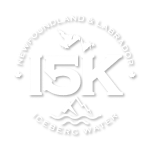Iceberg Harvesting: A Thriving Industry in Newfoundland and Labrador

In the rugged waters off Newfoundland and Labrador, iceberg harvesting has emerged as an adventurous and lucrative industry. Sought after for its exceptional purity and low mineral content, iceberg water has become the centerpiece of a niche market, finding its way into vodka, craft beer, cosmetics, and luxury bottled water.
Birth of a Natural Marvel
Every summer, massive icebergs calve off Greenland’s glaciers, sending towering, ancient snow compressed over millennia into the North Atlantic. These colossal icebergs drift into “Iceberg Alley,” a hotspot for harvesting operations. The process is labor-intensive but rewarding, as iceberg water is hailed as some of the purest on Earth.
The Industry’s Growth and Challenges
Iceberg harvesting has grown significantly in recent years, with six licensed companies operating in Newfoundland and Labrador. These companies pay the province a volume-based fee, a change from the previous flat rate, as demand for iceberg water surges globally. However, the industry faces unique challenges—harvesting requires skilled labor and specialized equipment, and theft has even become an issue. In 2019, thieves stole 30,000 liters of iceberg water, valued at $12,000, from a warehouse.
A Local Legacy and Global Demand
Captain Ed Kean, a pioneer in the field, exemplifies the adventurous spirit of iceberg harvesting. With over 30 years of experience, he leads crews in capturing and crushing iceberg fragments, supplying distillers like Iceberg Vodka. Products made with iceberg water, such as craft beer and bottled water, are sold globally, often marketed as luxury items. In one Los Angeles bar, a bottle of iceberg water was priced at $33.
Ethical and Environmental Considerations
While the industry capitalizes on the pristine quality of icebergs, it also sparks debate. Critics argue that melting glaciers symbolize the urgency of climate change, and some luxury products have faced backlash for perceived exploitation. Nonetheless, in Newfoundland’s close-knit communities, iceberg ice remains a symbol of hospitality, whether in a rum cocktail or at high-end establishments like the Fogo Island Inn.
The Iceberg Boom and Climate Change
The number of icebergs passing through the region has doubled in recent decades, driven by accelerated Arctic warming. In 2017, over 1,000 icebergs were observed in transatlantic shipping lanes, a stark reminder of the changing climate. Harvesters like Kean see their work as a way to utilize a fleeting resource before it vanishes into the ocean, preserving its purity for future enjoyment.
For the original source article, visit: Maclean’s - Iceberg Harvesting Is a Swashbuckling New Industry
